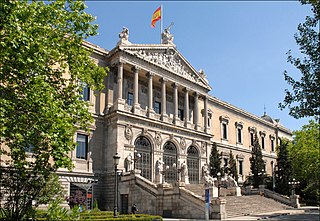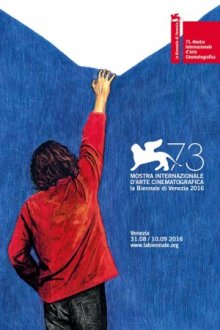No-Do is the colloquial name for Noticiario y Documentales, a state-controlled series of cinema newsreels produced in Spain from 1943 to 1981 and closely associated with the 1939–1975 Francisco Franco's dictatorial regime.

The Corporación de Radio y Televisión Española, Sociedad Anónima, S. M. E. known as Radiotelevisión Española, is the state-owned public corporation that assumed in 2007 the indirect management of the Spanish public radio and television service known as Ente Público Radiotelevisión Española.

The art of motion-picture making within Spain or by Spanish filmmakers abroad is collectively known as Spanish Cinema.

Isabel Coixet Castillo is a Spanish film director. She is one of the most prolific film directors of contemporary Spain, having directed twelve feature-length films since the beginning of her film career in 1988, in addition to documentary films, shorts, and commercials. Her films depart from the traditional national cinema of Spain, and help to “untangle films from their national context ... clearing the path for thinking about national film from different perspectives.” The recurring themes of “emotions, feelings, and existential conflict” coupled with her distinct visual style secure the “multifaceted ” filmmaker's status as a “Catalan auteur.”

The Biblioteca Nacional de España is a major public library, the largest in Spain, and one of the largest in the world. It is located in Madrid, on the Paseo de Recoletos.

Rocío Espinosa López-Cepero, known professionally as Laura or Laurita Valenzuela, was a Spanish television presenter, actress and model. She was one of the first television presenters in Spain appearing in the early broadcasts of Televisión Española (TVE). In 1969, she hosted the Eurovision Song Contest held in Madrid.

The Tenant is a 1957 Spanish drama film directed by José Antonio Nieves Conde and starring Fernando Fernán-Gómez about how difficult it was to find an affordable flat in Madrid. At the time it was banned by Spanish censors, and when it was re-released two years later, the film was edited, the dialogue was sanitized for political purposes, and the ending was changed to a happier one. It also failed at the box office.
A cinematheque is an archive of films and film-related objects with an exhibition venue. Similarly to a book library, a cinematheque is responsible for preserving and making available to the public film heritage. Typically, a cinematheque has at least one motion picture theatre, which offers screenings of its collections and other international films.
The Siege of the Alcazar or L'Assedio dell'Alcazar is a 1940 Italian war film directed by Augusto Genina about the famous siege of the Alcázar during the Spanish Civil War, set in Toledo, Spain. The film won the Mussolini Cup in Venice Film Festival for being the Best Italian Film. The film runs more in the Spanish dubbed version, it was restored by Filmoteca Española and released in DVD in Spain by Divisa Home Video. The film was shot in Cinecittà with Italian, French and Spanish actors. In the Italian version all three non-Italian actors spoke their lines in Italian. They were dubbed by Italian actors afterwards.

Marcelo Mosenson is the founder and executive director of the film production company Nomade Films.

The Filmoteca de Catalunya is a film archive located in Catalunya, Spain, aiming at the preservation of film and the dissemination of audiovisual and film culture. The head office and public rooms are located in the Raval neighbourhood, in central Barcelona. The Centre de Conservació i Restauració is located in the Parc Audiovisual in Terrassa.
Carlos Aguilar is a Spanish film critic and novelist.

China Bound is a 1929 silent film comedy produced and distributed by Metro-Goldwyn-Mayer. The film is rarely seen today due to some of its Asian racial content. A scene from the film was shown in the comedy retrospective MGM's Big Parade of Comedy (1965).
The Association of European Cinematheques is an affiliation of 49 European national and regional film archives founded in 1991. Its role is to safeguard the European film heritage and make these rich audiovisual records collected and preserved by the various film archives accessible to the public. ACE is a regional branch of FIAF Fédération Internationale des Archives du Film / International Federation of Film Archives. ACE members are non-profit institutions committed to the FIAF Code of Ethics.

The Bophana Center is an audiovisual center located in Phnom Penh, Cambodia. The center is dedicated to restoring, protecting and enhancing the Cambodian audiovisual heritage.

Paula Ortiz Álvarez is a Spanish director, screenwriter and producer who works for Get in the Pictures Productions and Amapola Films, teaches Audiovisual Communication at the University of Barcelona, and collaborates with the University of San Jorge in Zaragoza.

Museo del Cine Pablo Ducrós Hicken is a museum of cinema of Argentina located in Buenos Aires. It was established on 1971 and holds a collection of 65,000 reels of film.

The 73rd annual Venice International Film Festival was held from 31 August to 10 September 2016.

The Lilliputian Minuet was a 1905 French silent trick film by Georges Méliès. The film, of which only fragments are known to survive, featured Méliès as a magician making playing-card figures come to life in miniature.














